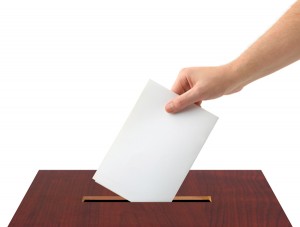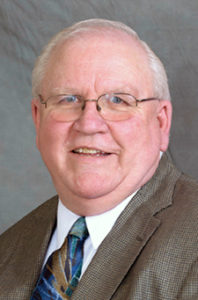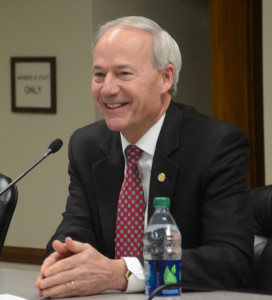 By Steve Brawner
By Steve Brawner
© 2016 by Steve Brawner Communications, Inc.
This year’s big races in Arkansas were decided long ago, when incumbents decided to run for re-election and when candidates decided which letter – “R,” “D” or something else – would be beside their name. Statewide, the “Rs” have it.
So even though you’re probably focusing most of your attention on the presidential race, your votes will count the most in local races and in the four ballot initiatives remaining on the ballot.
Those initiatives are where America stops being a republic governed by elected leaders and instead becomes a direct democracy – where you, Mr. and Mrs. Responsible Citizen, decide the law of the land.
Issue 1 is a constitutional amendment extending the terms of nine county officials – county judge, sheriff, etc., but not justice of the peace – from two years to four years. Secondarily, it would prevent county officers from being appointed or elected to another civil or elected office (school board, for example) while serving their terms; take their names off the ballot if they don’t have an opponent; and define the previously undefined “infamous crime” that warrants their removal from office.
Passage of the amendment would give elected officials more time to settle into their offices and govern instead of having to return to the campaign trail so soon after being elected. If you think that’s a good thing, vote yes. If not, vote no.
Issue 2 would allow the governor to maintain his or her powers when leaving the state. Under the Constitution, if Gov. Asa Hutchinson drives into Memphis or crosses the border separating Texarkana, Ark., and Texarkana, Tex., Lt. Gov. Tim Griffin becomes not just the acting governor but the actual governor. If Griffin is also out of state, then the Senate president pro tempore, Sen. Jonathan Dismang, R-Searcy, becomes the actual governor. Issue 2 would end that practice.
The pros? Governors travel a lot for legitimate reasons. Hutchinson, in fact, is in China this week meeting with business leaders he hopes will invest in Arkansas, and with government officials to promote Arkansas agriculture exports. In the past, replacement governors have taken advantage of their moment in the sun to sign a bill the governor didn’t like, or let people out of jail, or temporarily fire the governor’s chief of staff. On the con side, if the governor is out of state during an emergency – as occurred on Sept. 11, 2001 – current law ensures Arkansas still has a governor at home.
Issue 3 would allow the state to issue bonds for economic development projects in unlimited amounts. Currently, those bonds must equal no more than 5 percent of state general revenues. That provision would let the state go into more debt in order to attract a really big employer, such as an auto plant. The amendment also would allow cities and counties to provide economic development money to private entities, such as the local Chamber of Commerce. It also would let cities and counties sell bonds to private individuals rather than through a public sale.
Why vote yes? Because Arkansas is still a poor state, and it competes with other states that also use taxpayer funds to attract employers and spur economic development. Vote no if you’re concerned about how those funds are used, who benefits, and how much debt the state would incur.
The other initiative has attracted the most attention. Issue 6 is the Arkansas Medical Marijuana Amendment, which would legalize medical marijuana through a constitutional amendment. It would allow marijuana to be distributed through for-profit dispensaries and lists medical conditions that would qualify.
If you want more information, the Cooperative Extension Service has an excellent, unbiased voter guide at its website, www.uaex.edu. I used it for this column.

